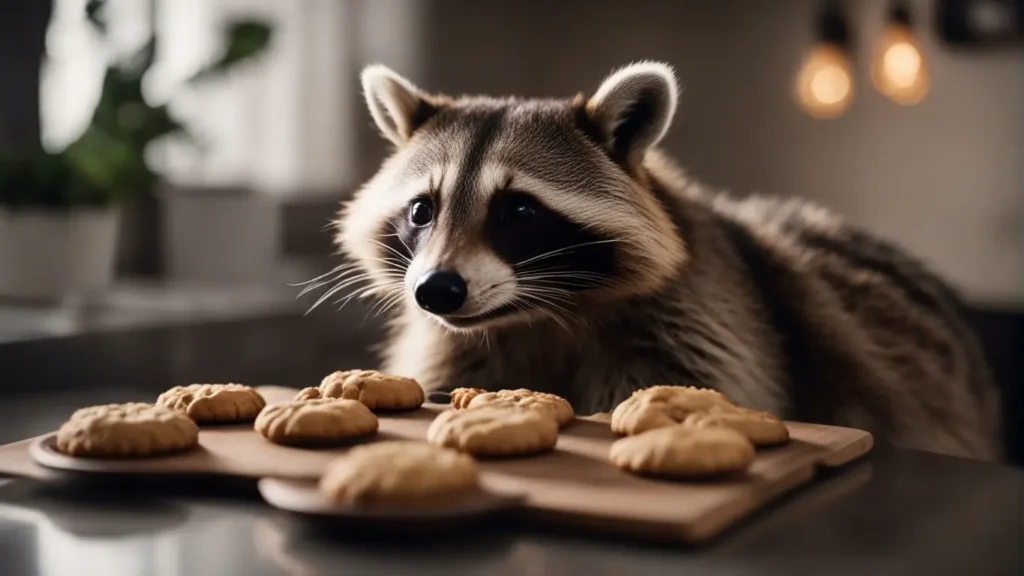Curious about keeping a pet raccoon?
Think again. In this eye-opening exploration, we unveil 10 truly alarming reasons why adopting a pet raccoon should never be on your list of considerations.
From safety concerns to ethical considerations, these revelations will make you reconsider bringing a raccoon into your home.
10 Reasons Why You Should Never Adopt a Pet Raccoon

Consider the following ten compelling reasons why adopting a pet raccoon should never be a consideration:
1. Legal Restrictions
It’s only legal in 16 states to own pet raccoons. You’ll need to find out if your state allows them before bringing one into your home.
In Canada, it is illegal to keep raccoons as pets, as they are on the ‘prohibited animals list’, alongside several other exotic species.
Violating these laws can result in serious legal consequences, including fines and the confiscation of your pet raccoon, making it crucial to be aware of and adhere to the regulations in your area.
Always prioritize responsible and lawful pet ownership.
2. Ethical Considerations
Removing a robust, wild animal from its natural habitat and subjecting it to a life of confinement not only raises ethical concerns but also infringes upon established legal regulations designed to protect wildlife.
The inherent right of wild animals to thrive in their natural environments is a fundamental principle that underscores our collective responsibility to respect and preserve the integrity of their habitats.
3. Domesticating a Raccoon Could Cause Wider Problems
If your pet raccoon escapes the house, it may scare your neighbors, their pets, and their children.
Furthermore, if the raccoon does escape and break free into the wild, as a result of being domesticated, it will not have the necessary survival skills to live in the wild.
4. Raccoons Are Not Bred to Coexist With Humans
Raccoons are wild animals that can cause severe harm and damage under the confines of a home.
The innate wild nature of raccoons makes them unsuitable for domestication.
Attempting to keep them as pets not only endangers human safety and property but also places undue stress on the raccoon, which is fundamentally ill-suited for life in captivity.
5. Raccoons Are Unpredictable
They are smart, curious, active, and playful animals, but they are also attention-seeking and unpredictable.
When trapped in confinement, they will use their long, dexterous, tapered fingers and nails to pry their way out.
Their behavior can be unpredictable, posing risks to both people and other pets.
6. It’s Not Possible to Domesticate Raccoons
Real scientific research has unequivocally demonstrated that raccoons cannot be domesticated.
People claiming otherwise often selectively focus on the positive aspects, but the stark truth is that raccoons retain their wild instincts, making them unsuitable for domestic life.
Attempting to domesticate these creatures can result in unforeseen and often hazardous consequences for both the raccoon and its human caretakers.
7. Raccoons Are High Maintenance
Raccoons demand a level of care and attention that rivals some of the most high-maintenance pets.
Their needs extend beyond just daily feeding, as they require mental stimulation and physical exercise.
Additionally, their veterinary care can be quite costly, encompassing vaccinations, preventive measures, and potential emergency treatments.
Moreover, the specialized care that raccoons necessitate often exceeds the capabilities of the average pet owner, making them a challenging and impractical choice for a household companion.
8. Raccoons Can Be Aggressive
They can bite anyone, including family, pets, strangers, and other animals. Their aggressive behavior can pose serious risks, leading to injuries and potential transmission of diseases.
It’s essential to recognize the inherent unpredictability in their demeanor and prioritize safety when it comes to raccoons as potential pets.
9. Lifespan Commitment
Raccoons have long lifespans and can live up to 20 years, requiring a significant long-term commitment.
This commitment goes beyond mere short-term pet ownership, and individuals must be prepared for the many years of dedicated care that lie ahead when considering raccoons as companions.
10. Environmental Impact
The decision to keep raccoons as pets extends its consequences beyond the confines of one’s home, potentially wreaking havoc on local ecosystems and upsetting the delicate equilibrium of wildlife.
The introduction of non-native species into an environment can lead to unforeseen ecological disruptions, making it imperative to avoid such actions in the interest of preserving our natural habitats.
Final Word
Raccoons are inherently wild creatures and should never be considered suitable pets.
These animals demand an extensive level of attention and care, exhibit unpredictable and potentially aggressive behavior, and it is both illegal and morally indefensible to capture a healthy wild animal and subject it to a life in captivity.
